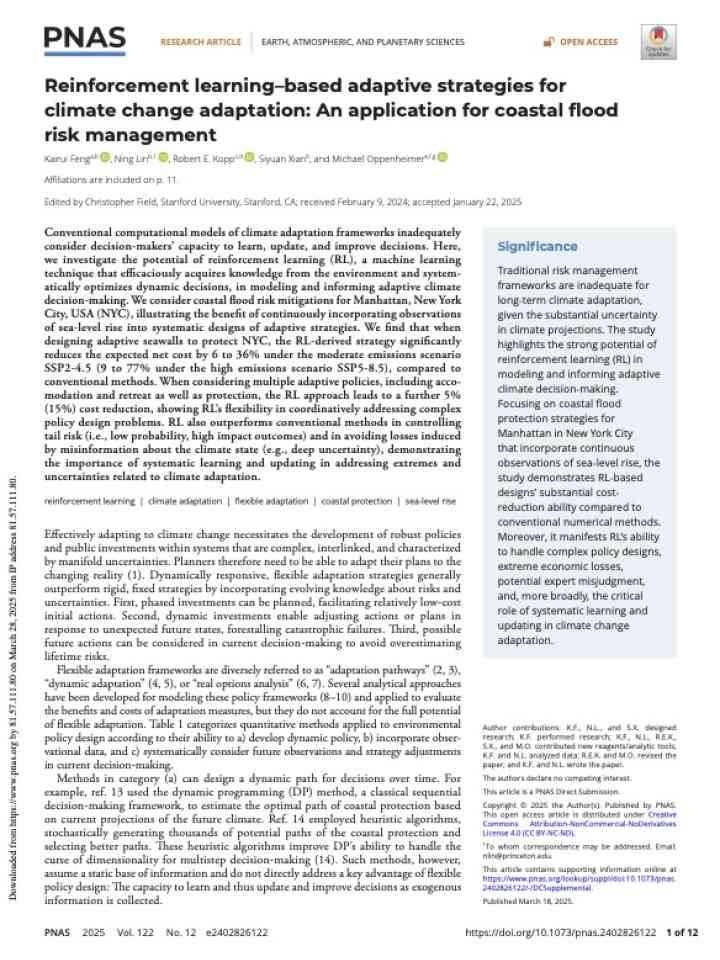Reinforcement learning–based adaptive strategies for climate change adaptation: an application for coastal flood risk management
This study investigates how reinforcement learning (RL), a form of machine learning, can improve climate adaptation strategies, specifically for managing coastal flood risks in Manhattan, New York City. Traditional flood risk management approaches often rely on static or pre-planned designs that fail to account for the deep uncertainty in future climate conditions, especially sea-level rise. The authors apply RL to model adaptive decision-making for coastal protection, including seawall height adjustments and combinations of retreat, accommodation, and dike strategies. RL allows for dynamic updates based on continuous observations of sea-level rise, supporting more flexible and cost-effective adaptation pathways.
The RL-based strategies consistently outperform traditional methods—such as static optimization, dynamic programming, and Bayesian approaches—by reducing expected net costs by 6–36% under moderate emissions and up to 77% under high-emissions scenarios. RL also better manages tail risks (extreme outcomes) and reduces “regret” when climate projections deviate from reality. The results show that incorporating learning and adaptation over time leads to smarter, more resilient climate decisions. Moreover, multi-strategy designs using RL, like combining retreat and infrastructure, can further reduce costs and improve robustness in uncertain futures.
Explore further

